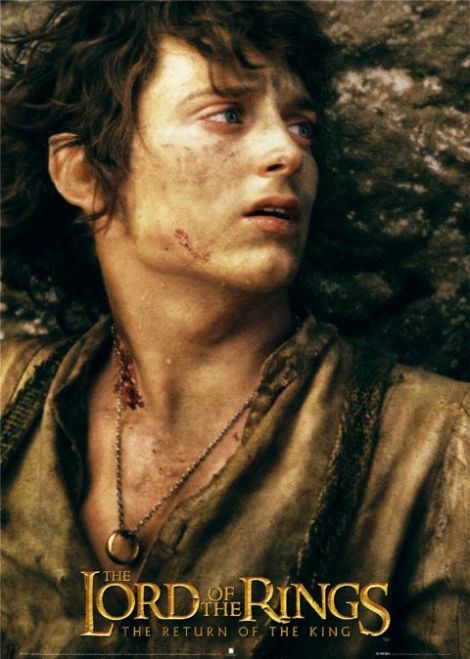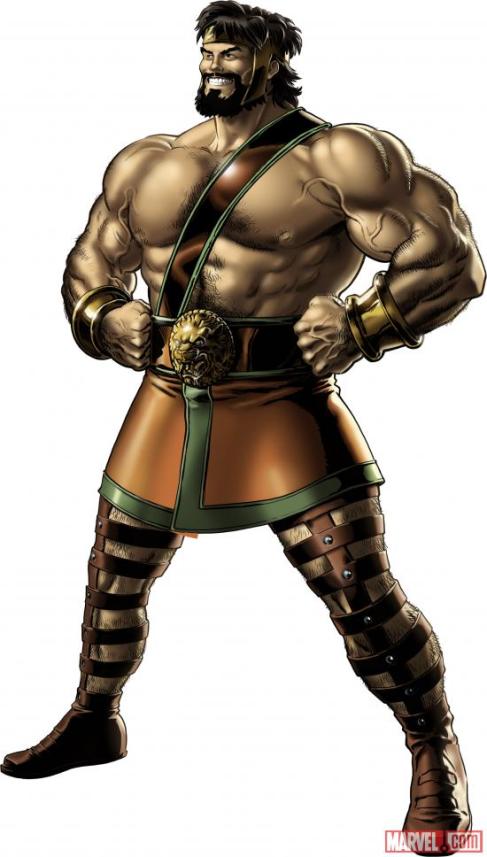

What's the difference between Hercules and Frodo? While one is super strong, embodying everything the Greeks idealized, the other is short, a little fat, neither strong nor particularly smart. Both are equally fictitious. Hercules killed his wife and went crazy but became a god, Frodo nearly gave in to temptation and got his fingers bitten off and then lived a quiet life. So who do we like better? The demigod, or the hobbit? The mythical hero or the everyday one? Although there is more action with the mythical hero and there is more room for creativity, we relate better to the everyday hero, because, let's face it, we don't have superpowers. Many wish we did, but if we can do something important without them, then we feel we have accomplished something. That's the reason superheroes have to have supervillains: if Superman only faced off against street thugs, it would get boring really fast (which is why I never felt Lex Luther was a great archnemesis to Superman: he didn't have any superpowers of his own, and didn't feel much like a threat).
So with Lord of the Rings, there are superheroes (Aragorn, Gandalf) and supervillains (Sauron, the Nazgul), but the real heroes are Frodo and Sam, who navigate through deadly Mordor with nothing but their wits and, more importantly, their perseverance. Getting a protagonist too powerful makes the story boring (which is why the Greeks threw in the tragedy of Hercules killing everyone and being hated by Hera, so there is something he doesn't have control over). Even in video games, where getting stronger over the course of a game is a staple of most genres, the last boss should be stronger than the player and has to be represent the greatest challenge. Basically, the greater the odds, the more interesting the story becomes. But there should be a balance, or it won't be very believable. If Frodo suddenly fought off all nine Nazgul before facing Sauron himself, all with Sting, his credibility as the everyday hero would be shot. Likewise, if he always escaped Sauron's notice through a series of incredibly lucky circumstances and plopped the ring into Mt Doom without breaking a sweat except from the heat of the volcano, readers will feel cheated, and his challenge would be lessened because it was so easy (I once saw a youtube video saying that he should have just jumped on one of the eagles and flown over to Mt Doom and dropped the ring in. Easy, but there would have been no story worth telling, now would there?) Each trial should be tailored to the hero, something he could believably overcome but the outcome would be in doubt, that he might not be able to overcome.The less luck, the less Deus ex Machina, the more doubt as to the outcome, the better.
But we don't just read about ordinary heroes. There is room for the Hercules, the Bruce Willis, the Luke Skywalker, and other powerful heroes. Oftentimes, they start out as normal, maybe having gone to the gym or taken martial arts beforehand, but still ordinary. But then they get thrown into a situation and their powers increase through training or they find some innate talent they didn't know they had (Harry Potter's magic, Luke's Force). We see them progress (although often in snippets where we know they are training but don't see the details. In movies, accompanied by an upbeat, encouraging soundtrack), know that they're not perfect, but they grow into their power. Even still, they should be the underdog. It's all relative, and we relate to relativity.
So is it better to write about heroes of mythic proportions, or to write about everyday heroes who are made by their reaction to a situation? It depends on what the story calls for, what could be believable, but they must always be human. In olden days, in serious works, there was usually the tragic flaw, often hubris or pride, that in the end caught up with the tragic hero and sealed his doom. Not everything ended happily ever after, but many stories were better for it (I prefer Shakespeare's tragedies to his comedies). The audience might put themselves in place of an everyday hero easier than a mythic one, but might get bored faster with him as well. So looking at the audience, the type of story, and how realistic it should guide an author what to choose. Oftentimes, it is someone in between. And as long as it is entertaining and doesn't strain credibility within the story, whatever is chosen is all right.
Reblogged from http://sageeyesblog.wordpress.com/wp-admin/post.php?post=1460&action=edit

No comments:
Post a Comment